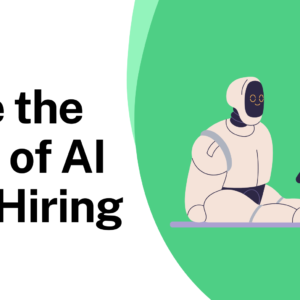The legal industry is on the cusp of a revolution, driven by the increasing use of artificial intelligence in the form of Legal AI Chatbots and AI-powered Legal Chatbots. These innovative tools are designed to streamline legal processes, enhance client communication, and improve overall efficiency. As technology continues to advance, it’s essential to explore the potential impact of AI on traditional legal practices and the role of Legal AI Chatbots in shaping the future of law.
The integration of AI-powered Legal Chatbots in law firms and legal institutions has the potential to transform the way legal services are delivered. By leveraging the capabilities of Legal AI Chatbots, lawyers and legal professionals can focus on high-value tasks, while automating routine and administrative duties. This shift towards AI-powered legal solutions can lead to significant benefits, including increased productivity, reduced costs, and enhanced client satisfaction.
Introduction to Legal AI
As the legal industry continues to evolve, it’s crucial to understand the capabilities and limitations of Legal AI Chatbots and AI-powered Legal Chatbots. By examining the current state of legal technology and the potential applications of AI in law, we can gain valuable insights into the future of legal services. The use of Legal AI Chatbots and AI-powered Legal Chatbots is poised to revolutionize the legal industry, and it’s essential to stay informed about the latest developments and trends in this field.
Key Takeaways
- Legal AI Chatbots and AI-powered Legal Chatbots are transforming the legal industry
- AI-powered legal solutions can enhance client communication and improve efficiency
- The integration of AI in law firms can lead to increased productivity and reduced costs
- Legal AI Chatbots have the potential to automate routine and administrative duties
- The use of AI in law requires a balanced approach, considering both benefits and limitations
- Staying informed about the latest developments in legal technology is crucial for legal professionals
Understanding Legal AI Chatbots
Legal AI chatbots are revolutionizing the way law firms and legal departments operate. These chatbots are powered by machine learning algorithms and natural language processing, enabling them to understand and respond to legal queries. By leveraging Legal Technology Solutions, law firms can streamline their operations and provide more efficient services to their clients.
The use of Automated Legal Services can help reduce costs and increase productivity. Here are some key benefits of using legal AI chatbots:
- 24/7 availability to handle client inquiries
- Ability to process and analyze large amounts of data
- Improved accuracy and reduced errors
As the legal industry continues to evolve, the adoption of legal AI chatbots is expected to increase. By embracing these Legal Technology Solutions, law firms can stay ahead of the curve and provide innovative services to their clients. With the help of Automated Legal Services, the legal profession can become more efficient, accessible, and client-centric.
The Evolution of AI in the Legal Sector
The integration of AI in the legal industry has undergone significant transformations over the years. From its early beginnings to the current state of affairs, the evolution of AI in the legal sector has been marked by notable developments. The introduction of computer-aided legal research and the development of expert systems paved the way for the use of machine learning algorithms and the introduction of virtual legal assistants.
The historical context of legal technology is essential in understanding the current state of AI in the legal industry. Key milestones in this evolution include the development of legal software and the introduction of online legal research platforms. These advancements have enabled lawyers to streamline their workflow, improve client communication, and enhance legal research.
Historical Context of Legal Technology
The use of AI in the legal sector has been driven by the need for efficiency, accuracy, and cost-effectiveness. Virtual legal assistants have become increasingly popular, providing lawyers with valuable support in tasks such as document review, contract analysis, and legal research. The integration of AI in the legal industry has also enabled the development of predictive analytics, allowing lawyers to make more informed decisions and improve client outcomes.
Key Developments in AI and Law
Some of the key developments in AI and law include:
- The use of machine learning algorithms to analyze large datasets and identify patterns
- The introduction of natural language processing to improve document review and contract analysis
- The development of virtual legal assistants to provide support in tasks such as legal research and client communication
The evolution of AI in the legal sector is expected to continue, with new developments and innovations emerging regularly. As the legal industry becomes increasingly reliant on AI, it is essential to ensure that these technologies are used in a way that is ethical and responsible, and that they prioritize the needs of clients and the legal profession as a whole.
Benefits of Using Legal AI Chatbots
Law firms and legal professionals are increasingly turning to Legal Automation Tools to streamline their operations and improve client satisfaction. One of the key benefits of using legal AI chatbots is cost efficiency and accessibility. By automating routine tasks, law firms can reduce costs and allocate more resources to high-value services.
Chatbots for Legal Practices can also enhance client communication, providing 24/7 support and instant responses to common queries. This not only improves client satisfaction but also frees up staff to focus on more complex and high-value tasks. Additionally, AI-powered chatbots can help law firms to streamline their workflow, reducing the time spent on administrative tasks and increasing productivity.
Some of the key benefits of using legal AI chatbots include:
- Cost savings through automation of routine tasks
- Improved client satisfaction through 24/7 support
- Enhanced legal research capabilities through machine learning algorithms
By leveraging Legal Automation Tools and Chatbots for Legal Practices, law firms can stay ahead of the competition and provide better services to their clients. As the legal industry continues to evolve, it’s likely that we’ll see even more innovative applications of AI-powered chatbots in the future.
Limitations of Legal AI Chatbots
While Legal AI Chatbots have revolutionized the legal sector, they are not without limitations. One of the primary concerns is their ability to understand complex legal issues. AI-powered Legal Chatbots can struggle to comprehend the nuances of human language, leading to potential misinterpretations. This can result in inaccurate advice or guidance, which can have serious consequences in a legal context.
Another significant limitation of Legal AI Chatbots is the lack of human judgment and empathy. While AI-powered Legal Chatbots can provide factual information, they often fail to consider the emotional and social aspects of a case. This can lead to a lack of personalized support for clients, which is a critical aspect of legal services. Some of the key limitations of Legal AI Chatbots include:
- Lack of human judgment and empathy
- Difficulty in understanding complex legal issues
- Potential for bias and transparency issues
Despite these limitations, Legal AI Chatbots can still be a valuable tool in the legal sector. By acknowledging their limitations and using them in conjunction with human legal professionals, we can create a more efficient and effective legal system. Legal AI Chatbots can help streamline routine tasks, freeing up human lawyers to focus on more complex and high-value tasks.
The Role of AI in Law Firms
Law firms are increasingly adopting Legal Technology Solutions to streamline their operations and improve client services. The integration of AI in law firms has been shown to enhance the efficiency of legal processes, allowing lawyers to focus on high-value tasks. With the help of Automated Legal Services, law firms can now automate routine tasks such as document review, research, and client communication.
The use of AI in law firms is not limited to support functions. AI-powered tools can also assist lawyers in case management, predicting outcomes, and identifying potential risks. By leveraging machine learning algorithms, law firms can analyze large datasets and gain valuable insights that inform their legal strategies. This can lead to better outcomes for clients and improved reputation for the law firm.
Some of the key benefits of AI in law firms include:
- Improved efficiency and productivity
- Enhanced client services and communication
- Better case management and prediction of outcomes
- Increased accuracy and reduced errors
As law firms continue to adopt AI and Automated Legal Services, it is likely that we will see significant changes in the way legal services are delivered. With the help of Legal Technology Solutions, law firms can stay ahead of the curve and provide innovative solutions to their clients.
Real-World Applications of Legal AI
The integration of AI in the legal industry has led to the development of innovative solutions, including Virtual Legal Assistants. These AI-powered tools are being used in various sectors, such as healthcare, finance, and e-commerce, to streamline legal processes and improve efficiency. By leveraging AI in the legal industry, companies can reduce costs and enhance client satisfaction.
Some notable examples of successful implementations include:
- Law firms using AI-powered chatbots to provide 24/7 customer support and answer frequently asked questions
- Healthcare organizations utilizing Virtual Legal Assistants to manage contracts and ensure compliance with regulatory requirements
- E-commerce companies employing AI-driven tools to automate legal research and document review
These implementations demonstrate the potential of AI in the legal industry to transform the way legal services are delivered. By embracing AI and Virtual Legal Assistants, companies can stay ahead of the curve and provide high-quality legal services to their clients. As the use of AI in the legal industry continues to grow, we can expect to see even more innovative applications of this technology in the future.
Will AI Replace Lawyers?
The question of whether AI will replace lawyers is a complex one, with many factors to consider. While Legal Automation Tools and Chatbots for Legal Practices have made significant advancements in recent years, they still lack the human element that is essential in the legal profession. Empathy and complex decision-making are two key areas where human lawyers excel, and which AI systems have yet to replicate.
Research has shown that while AI can process large amounts of data quickly and accurately, it is not yet able to match the nuance and judgment of a human lawyer. This is particularly important in areas such as contract negotiation and dispute resolution, where the ability to understand and respond to complex emotional and social cues is crucial. The use of Legal Automation Tools can help with routine tasks, but Chatbots for Legal Practices are not a replacement for human lawyers.
One potential solution is the development of hybrid models of service delivery, which combine the benefits of AI with the expertise and judgment of human lawyers. This could involve using AI to handle routine tasks such as document review and research, while human lawyers focus on higher-level tasks that require empathy, creativity, and complex decision-making. The following are some benefits of hybrid models:
- Improved efficiency and productivity
- Enhanced client experience
- Increased accuracy and consistency
- Better outcomes for clients
By leveraging the strengths of both AI and human lawyers, hybrid models can provide a more comprehensive and effective approach to legal service delivery. As the legal profession continues to evolve, it is likely that we will see a growing trend towards the adoption of hybrid models that incorporate Legal Automation Tools and Chatbots for Legal Practices.
Future Trends in Legal AI
The legal industry is on the cusp of a revolution, driven by the rapid development of Legal AI Chatbots and AI-powered Legal Chatbots. As these technologies continue to evolve, they are likely to have a profound impact on the way legal services are delivered. Machine learning algorithms and natural language processing are expected to play a key role in this transformation, enabling Legal AI Chatbots to analyze vast amounts of data and provide more accurate and efficient services.
Some of the key trends that are expected to shape the future of legal AI include:
- Increased use of AI-powered Legal Chatbots to automate routine tasks and improve client communication
- Development of more advanced machine learning algorithms to enable Legal AI Chatbots to analyze complex legal data and provide more accurate predictions
- Greater emphasis on data analysis and interpretation skills for lawyers, as they work alongside AI-powered Legal Chatbots
As the legal industry continues to evolve, it is likely that Legal AI Chatbots and AI-powered Legal Chatbots will play an increasingly important role in shaping the future of legal services. By leveraging these technologies, law firms and legal professionals can improve efficiency, reduce costs, and provide better services to their clients.
Addressing Public Concerns about AI
As the use of Legal Technology Solutions becomes more widespread, concerns about the trust and reliability of AI systems are growing. The public is increasingly aware of the potential risks associated with Automated Legal Services, including privacy and data security issues. To address these concerns, it is essential to prioritize transparency and accountability in AI development and deployment.
Research has shown that the key to building trust in AI systems is to provide clear guidelines and regulations. This can be achieved by establishing robust testing and validation protocols, as well as implementing measures to prevent bias and discrimination. By doing so, we can ensure that Legal Technology Solutions are designed with the user’s best interests in mind, while also protecting their sensitive information.
Some of the ways to address public concerns about AI include:
- Implementing robust security measures to protect user data
- Providing clear and transparent information about AI decision-making processes
- Establishing accountability mechanisms to address errors or biases in AI systems
By taking a proactive approach to addressing public concerns about AI, we can build trust and confidence in Legal Technology Solutions and Automated Legal Services. This will ultimately lead to greater adoption and more effective use of these technologies in the legal sector.
| Concerns | Solutions |
|---|---|
| Privacy and data security | Implementing robust security measures |
| Bias and discrimination | Establishing accountability mechanisms |
| Lack of transparency | Providing clear and transparent information |
Conclusion: The Future of Legal Services
As the legal industry continues to embrace AI-powered chatbots and virtual assistants, it’s clear that technology will play an increasingly critical role in the future of legal services. While AI cannot replace the human element in law, the collaboration between AI and lawyers holds immense potential to transform the legal landscape.
Lawyers must develop proficiency in AI and data analysis to effectively leverage these technologies and enhance their practice. By integrating AI-powered tools, legal professionals can streamline client communication, improve case management, and automate repetitive tasks, allowing them to focus on high-value, strategic work. This synergy between human expertise and AI capabilities can lead to greater efficiency, cost savings, and improved client satisfaction.
The future of legal services will be shaped by the continued advancement of AI and machine learning algorithms. From automating document review to providing personalized legal advice, AI-powered systems will transform the way legal services are delivered. However, it’s crucial that these technologies are implemented with a focus on transparency, ethical considerations, and the preservation of the human touch that is so vital in the legal profession.














